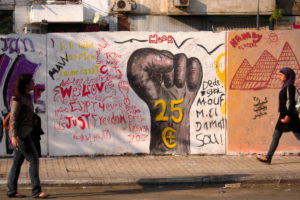The memory of the Egyptian revolution is the only weapon we have left
Omar Robert Hamilton The Guardian, Monday 25 January 2016 I didn’t take my camera out with me the night Hosni Mubarak was overthrown. I stood in Tahrir Square among tens of thousands of Egyptians and told myself I would enjoy the moment, I would not divide myself from the night’s magical reality with a lens. I had filmed up until then because it
» Read more